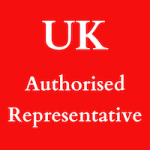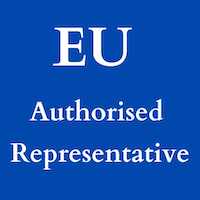[vc_row][vc_column][vc_empty_space height=”50px”][vc_separator][/vc_column][/vc_row][vc_row][vc_column width=”2/3″][vc_column_text]
The MHRA, Trading Standards and the TPD
Here, we take a look at the role of the MHRA and Trading Standards (TS) in policing the e-cig market. Both authorities have a part to play in ensuring vape businesses are taking steps to comply with the TPD regulations. But their roles differ.
The Role of MHRA
MHRA is responsible for implementing the majority of TPD rules relating to e-cigarettes and e-liquids. The TPD rules set minimum standards for the safety and quality of e-cigs, and stipulate that information must be provided to consumers so they can make informed choices. MHRA is responsible for ensuring manufacturers and suppliers meet these requirements.[/vc_column_text][vc_empty_space][vc_message]Anyone who manufactures or imports e-cigarettes or e-liquids, or rebrands these products as their own, must submit information about their products to MHRA. Once a notification has been submitted, MHRA will do a basic check to verify that the product complies with TPD requirements (Learn more about TPD compliance here).[/vc_message][vc_empty_space][vc_column_text]
The Role of Trading Standards
Trading standards are responsible for investigating non-compliance with the TPD, and enforcing the regulations where necessary.
One of the key aims of the TPD is to protect children from starting to use e-cigarettes and e-liquids. The Chartered Trading Standards Institute (CTSI) plays a role in pursuing this aim, for example, by investigating whether businesses sell e-cigarettes to under-18s illegally. The CTSI also investigates whether e-cigarette and e-liquid branding encourages children to use these products.[/vc_column_text][vc_empty_space][vc_column_text]
How do the roles of MHRA and Trading Standards differ?
Both the MHRA and Trading Standards play a part in ensuring vape stores and manufacturers meet the TPD requirements but they work in different ways. For example, a vape store or manufacturer is unlikely to get a visit from the MHRA.
As a general rule, you can expect the MHRA to check for TPD compliance from a distance. They would not make a visit in person – they would write a letter or send an email. And it will more likely relate to the notification and the information contained within (such as the TPD testing or the manufacturing process).
Trading standards officers, on the other hand, are likely to drop into a store. It could be a unannounced speculative visit – for no particular reason – or to investigate reports of non-compliant products being sold. They may also write a letter or send an email requesting information (see Letter to vape store section below).[/vc_column_text][vc_empty_space][vc_column_text css=”.vc_custom_1667347983328{border-top-width: 1px !important;border-right-width: 1px !important;border-bottom-width: 1px !important;border-left-width: 1px !important;padding-top: 20px !important;padding-right: 20px !important;padding-bottom: 20px !important;padding-left: 20px !important;background-color: rgba(77,249,249,0.47) !important;*background-color: rgb(77,249,249) !important;border-left-style: solid !important;border-right-style: solid !important;border-top-style: solid !important;border-bottom-style: solid !important;}”]
Reporting Responsibilities of E-cig Manufacturers
E-cig producers must inform MHRA if they believe a product is unsafe, of poor quality or does not comply with TPD requirements. They can do this by emailing the MHRA. They may also wish to withdraw the product from the market – if they decide to do this then the notification should be updated accordingly.
Reporting side effects by the public
Vapers and healthcare professionals such as doctors can also submit safety concerns or side effects to MHRA.
Common side effects of vaping
Some of the common side effects of vaping include:
- Coughing
- Sore or dry Throat
- Headache
- Dizziness
- Nausea
- Stomach Ache
- Loss of the sense of taste (known as ‘Vaper’s Tongue’)
If you think you have suffered a side-effect from using an e-cig you can report this to the MHRA via the Yellow Card system. This system is designed to capture suspected adverse events from not only e-cigs but medicines, medical devices and herbal products.
Report side effect via Yellow Card system
Consumers can report non-compliance
Anyone can report products they suspect to be defective or non-compliant to their local Trading Standards. The Trading Standards shall investigate and decide whether or not to take any action.[/vc_column_text][vc_empty_space][vc_separator][vc_empty_space][vc_column_text]
Letters to vape stores from Trading Standards
We are hearing from some clients that Trading Standards (‘TS’) in the UK have begun to contact e-cigarette retailers. Letters from a regional TS office have been sent to local e-cigarette retailers asking questions about what they are doing to ensure the products they sell are safe and compliant, among other things. This is a new development in the e-cigarette regulatory environment and it may present some challenges to a retailer who is not-so-savvy on TPD and other applicable regulations.
Compliance Checks
Until now TS had little to do with e-cigarette retailers. And apart from some basic checks (Is the product notified on the MHRA website? Is there a health warning on the label?) the retailer had little to do when it came to compliance checks. But the nature of the letter suggests that retailers will have to be better informed about all the regulations that apply to the products and they may need to adopt some new compliance/safety measures.
What questions did the Trading Standards office ask?
The key questions included:
- What measures have you taken to ensure the products you sell are safe and compliant with TPD/CLP regulations?
- What testing do you carry out?
The letter went on to ask about where the products were made.[/vc_column_text][vc_empty_space][vc_column_text]
What does this mean for retailers?
The nature of the questions indicates the following:
- simply relying on the fact that the product is notified on the MHRA website is not enough. Just because a product has been notified and the EC-ID number is available does not mean the product is fully compliant with all the regulations. Apart from notification, there are other considerations: Does the product meet all the packaging and leaflet rules? Does it meet all the safety TPD requirements? Due to the nature of the regulatory process, these aspects will not have been checked by the MHRA before the product is added to the MHRA ‘notified list’ so this alone cannot be relied upon to know the compliance status of a product.
- a retailer who primarily import products from a non-EU country may face greater scrutiny than one that is supplied products by a UK manufacturer. Retailers cannot rely on the analytical laboratory tests (as part of the notification process) arranged by the manufacturer alone; retailers may be required to conduct laboratory tests themselves*.
[/vc_column_text][vc_empty_space][vc_column_text css=”.vc_custom_1521253437026{border-top-width: 1px !important;border-right-width: 1px !important;border-bottom-width: 1px !important;border-left-width: 1px !important;padding-top: 20px !important;padding-right: 20px !important;padding-bottom: 20px !important;padding-left: 20px !important;background-color: rgba(110,252,78,0.59) !important;*background-color: rgb(110,252,78) !important;border-left-color: rgba(0,0,0,0.73) !important;border-left-style: solid !important;border-right-color: rgba(0,0,0,0.73) !important;border-right-style: solid !important;border-top-color: rgba(0,0,0,0.73) !important;border-top-style: solid !important;border-bottom-color: rgba(0,0,0,0.73) !important;border-bottom-style: solid !important;}”]
How can we help?
We have supported retailers who have received Trading Standard letters. We can help in a number of ways:
- Provide assistance in responding to TS letters and ensure that the TS are satisfied with your compliance/safety measures
- Conduct a thorough compliance check of all products (Ref: TPD and CLP regulations)
- Arrange affordable analytical laboratory testing of products to bolster your compliance/safety measures
We have sound experience in helping our clients comply and remain compliant with the applicable regulations. We understand the regulatory process from start to finish: from notification, emissions testing and packaging (inc. CLP). Please do not hesitate to contact us to arrange a free consultation.
*analytical laboratory testing by the retailer can be avoided in some cases but it will mean you will need to work more closely with your supplier. Contact us for more information.[/vc_column_text][vc_empty_space height=”50px”][vc_message]
Trading Standards and their ‘diminishing resources’
A CTSI report published in 2016 revealed that the total trading standards spend in the UK had fallen to just £1.99 per person per year, and that staffing had fallen by 53% since 2009. This lack of resources is likely to affect the policing of the TPD and other regulations relating to e-cigarettes and e-liquids, as trading standards bodies may not have the time or money to fully investigate the market.[/vc_message][/vc_column][vc_column width=”1/3″][vc_empty_space height=”50px”][vc_btn title=”Get Support” style=”flat” shape=”square” color=”danger” align=”center” link=”url:https%3A%2F%2Fmedicpro.london%2Fcontact-us%2F|||”][/vc_column][/vc_row][vc_row][vc_column][/vc_column][/vc_row]

